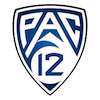
By Dane Miller, SuperWest Sports
August 13, 2020
At times, the waiting felt like a traffic jam on the freeway. And when we finally got close enough to see the wreck, we knew it was bad.
But we couldn’t look away.
The Pac-12’s decision to postpone all sports until at least January had everyone rubbernecking the mangled prospects of a season filled with hope.
After announcing the revised football schedule just one week earlier, the Conference did an abrupt 180 that left the college football world wondering what had changed.
![]() It wasn’t just that the Conference’s leaders seemed to be in lockstep with the Big Ten, playing the part of little brother and following whatever the Midwest conference decided.
It wasn’t just that the Conference’s leaders seemed to be in lockstep with the Big Ten, playing the part of little brother and following whatever the Midwest conference decided.
And it wasn’t solely the lack of transparency that preceded the sudden decision.
It was the agonizing tease of dangling a fall season in front of every fan, player, and coach, just to take it away in a non-public vote, without any coordinated statement beforehand.
We deserved better.
Reactions to the postponement of the season have been as varied and extreme as reactions to the Coronavirus itself. Many will undoubtedly disagree with the aggressive stance I offer here, but others surely will not.
![]() The risk of COVID-19 and its transmission was known to every player and coach. The individuals that reported to campus for fall camp accepted that risk, or took advantage of the NCAA’s “opt-out” provision and retained their scholarship.
The risk of COVID-19 and its transmission was known to every player and coach. The individuals that reported to campus for fall camp accepted that risk, or took advantage of the NCAA’s “opt-out” provision and retained their scholarship.
Each school had developed a testing protocol and appeared to be implementing it successfully. As a commendable precaution, non-conference games had been cancelled, and conference games had been pushed back.
Pac-12 teams were on track for a late September start.
Then, seemingly overnight, rumors began swirling on social media that concerns over myocarditis were forcing the decision-makers to reconsider. The treatable heart condition that can cause death in severe cases is a legitimate concern, but it’s a rare and unavoidable side-effect of the pandemic.
That may sound reckless, but life must go on. We can’t stay cooped up in self-isolation forever. The risk of myocarditis won’t—and shouldn’t—stop people from working, enjoying their leisure time, and going about their daily lives.
 And while a contact sport arguably puts its participants in situations where transmission is easier, the controlled environments established for them by their athletic departments, along with consistent testing and medical care, would have mitigated it.
And while a contact sport arguably puts its participants in situations where transmission is easier, the controlled environments established for them by their athletic departments, along with consistent testing and medical care, would have mitigated it.
Perhaps even more so than by canceling the season.
Wouldn’t it have made more sense to implement stricter testing protocols than outright postpone the season? What’s going to be different in January?
Unless a viable vaccine is developed by the New Year, it seems unlikely that any substantial change in circumstance would make it suddenly safer to play.
The players and coaches knew what they were getting into, and they chose to be there.
 The Pac-12’s well-intentioned handling of the situation was a disservice to everyone, even if the decision ultimately turns out to be what’s best for the participant’s health and safety.
The Pac-12’s well-intentioned handling of the situation was a disservice to everyone, even if the decision ultimately turns out to be what’s best for the participant’s health and safety.
History will be the judge. The choice to postpone the season certainly seems like the safer option. No doubt, there will be studies tracking the players who participate in comparison with the players who don’t, provided the other conferences stay the course.
We probably won’t know whether the right decision was made for months, long after the Fifth Stage of grief has been acknowledged and overcome.
***
In the meantime, the players are left with two stark choices: Retreat into bitterness and despair, or use the four additional months to get stronger, faster, and smarter.Even if there is no spring season, football will be played again. Eventually. The teams that work the hardest during the pandemic will be rewarded, while those that succumb to victim-mentality are likely to be left behind.
The decisions players make over the next few months will shape their futures.
 Ultimately, it’s a choice that will separate the strong from the weak, the good from the great, and the elite from the legendary. Without an impending season to drive them, it will be much easier to put off the work or neglect it altogether.
Ultimately, it’s a choice that will separate the strong from the weak, the good from the great, and the elite from the legendary. Without an impending season to drive them, it will be much easier to put off the work or neglect it altogether.
It’s up to players to make the most of their time. The administrators and coaches must also make the most of the opportunities the NCAA affords them to assist and to motivate.
The rest of us will continue to debate the correctness and impact of the Pac-12’s decision.
And wonder what might have been.
-
Ranking the Big 12 Football Head Coaches for 2025
> Dane Miller gives us his assessment of how the 16 top guys stack up heading into the fall - July 4, 2025 -
The Top 10 Surprise Teams in the West for 2025
> College football programs in the region most likely to overachieve in the upcoming season - June 20, 2025 -
Top 10 Teams Most Likely to Make the Playoff from the West
> Our Dane Miller evaluates the region's programs with the best shot at the 2025-26 CFP - June 6, 2025

